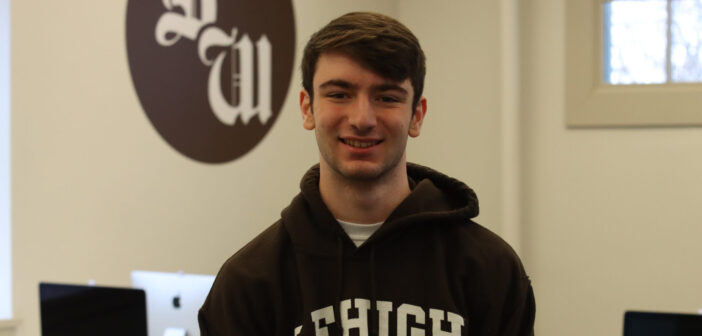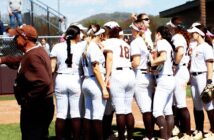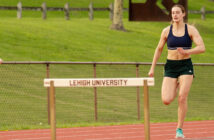Once I finished lacing my skates, I planted both blades firmly against the pond and took two exploratory strides out to the center of the frozen surface.
It was January — my first time on skates since the early summer following my graduation from high school.
I surveyed the pond. The tall trees shielded this sanctuary from the rest of the world. With the exception of my distorted reflection in the ice, I was alone.
I exhaled slowly. A cloud of foggy breath enveloped my face as I stared out to the net I had slid out to the far end of my make-shift rink. I skated toward it deliberately and tried to pick up speed.
“How fast can I go?” I wondered.
It felt like I was flying as I took a sharp turn around the back of the net, the slicing sound of the blades playing as I bent my knees and lowered my center of gravity.
I was gone from this world. Nothing mattered except preserving the solitude of my environment and the cathartic experience of going so quickly, so effortlessly and losing track of time as I flung pucks toward the net. My skates carved the ice like a monument to the freedom of being able to fly.
I have played hockey since I was 7 years old, and if it has taught me anything, it is to enjoy the feeling of being as free as I was on that pond over winter break.
I have also learned many other things from my hockey career that have molded me into who I am today.
I learned perseverance. In hockey, you get hit a lot, and sometimes it hurts.
The first time somebody checked me against the boards, I was launched into the glass face first. I was sent careening, about one pane away from landing three rows into the bleachers. However, I got up and skated back into play.
I learned early on that when you get knocked down, you must get back up. If you don’t, you’ve lost confidence in yourself and your abilities.
Hockey has a problem with players competing through serious injuries to avoid being called weak. That is not what I am advocating for.
Some players make it an issue of pride, but truthfully, it is an issue of mental endurance. It can be mortifying to challenge the guy who just made your mom start emergency dialing 9-1-1, but you have to prove to yourself that no matter how many times that happens, you will never lose faith in yourself, because once you do, you’ve lost the game.
Playing on a broken ankle will do nothing but injure you even worse than you already are. But getting up when you’ve been hit and momentarily feel like quitting will make you stronger than you ever thought you could be.
I also learned to make quick, deliberate decisions I was confident in.
Hockey is a mental chess match. The game moves at such incomprehensible speeds that it feels like you have to process everything ahead of time.
This also means that you cannot question any action. You have to be sure of yourself because — oddly enough for a mental chess match — once you take a second to think, the game has already passed you by.
In life, you will have more time than the few seconds it takes for a comeback to turn into a lost cause, but you still need to be firm in every choice you make. Hesitation and ambivalence are difficult to shake, but when presented with an opportunity, do not be afraid to fail.
Failure enables growth — whether on or off the ice — as mistakes allow the breeding grounds for learning. But that does not mean, “be brash.” It means, “do not be afraid.”
The physical toll and energy I expended playing hockey for over a decade was exhausting. Yet, it is odd knowing my years of competitive hockey have ended.
Before January, I stayed off the ice for a few months to prepare for college. When I finally went back to the pond, I had traded my helmet and shoulder pads for a backwards hat, sunglasses and a maroon Vans jacket.
Having less equipment made me more attune to the environment. The wind whipped past my face, and the sounds of my skates piercing the ice composed a symphony atop the frozen waters.
It took me back to the conversations I had with my dad after late-night practices in high school.
“What did you do?”
“Skated and shot.”
“That’s it?”
That was all it had to be, even though it means so much more now. I was free after all.






Comment policy
Comments posted to The Brown and White website are reviewed by a moderator before being approved. Incendiary speech or harassing language, including comments targeted at individuals, may be deemed unacceptable and not published. Spam and other soliciting will also be declined.
The Brown and White also reserves the right to not publish entirely anonymous comments.